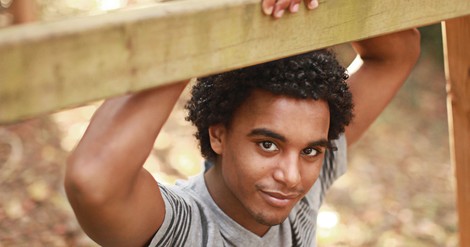Your podcast discovery platform
Curious minds select the most fascinating podcasts from around the world. Discover hand-piqd audio recommendations on your favorite topics.

piqer for: Global finds Health and Sanity Doing Good
Bangalore-based Rashmi Vasudeva's journalism has appeared in many Indian and international publications over the past decade. A features writer with over nine years of experience heading a health and fitness supplement in a mainstream Indian newspaper, her niche areas include health, wellness, fitness, food, nutrition and Indian classical Arts.
Her articles have appeared in various publications including Mint-Wall Street Journal, The Hindu, Deccan Herald (mainstream South Indian newspaper), Smart Life (Health magazine from the Malayala Manorama Group of publications), YourStory (India's media technology platform for entrepreneurs), Avantika (a noir arts and theatre magazine), ZDF (a German public broadcasting company) and others.
In 2006, she was awarded the British Print-Chevening scholarship to pursue a short-term course in new-age journalism at the University of Westminster, U.K. With a double Masters in Globalisation and Media Studies from Aarhus Universitet (Denmark), University of Amsterdam and Swansea University in Wales, U.K., she has also dabbled in academics, travel writing and socio-cultural studies. Mother to a frisky toddler, she hums 'wheels on the bus' while working and keeps a beady eye on the aforementioned toddler's antics.
Impulsive Suicide: A Powerful Lament By A Grieving Mother
The photo of a beautiful boy stares out of the page when you open this article. Fisseha from Ethiopia, Sol to his American friends. This article is his mother’s words for her precious son.
When she begins the article by calling him a ‘marvelous, graceful boy’, you believe her instantly. When Sol and his family arrived in America when the boy was 10, apparently the entire neighborhood thought so too. He dazzled all with his unique skills, says his mother — be it his knack with animals or his skill of sparking fires or his expertise in carving wooden handles. He was a soccer star at Emory University where he studied; and no one could beat him at Risk, Monopoly or even Uno. He was a gifted scholar. He was loved by all. He was kind. He killed himself.
After a day’s search, the police found him hanging from a tree in the woods. A suicide note about his soccer coach was lying below.
This is his mother’s testimony to the kind of suicide that does not inspire belief, and alas, only encourages suspicions and speculations.
When a person commits suicide, most assume they must have planned it for long; that there were red flags that their near ones missed; or they suffered from some deeply buried childhood trauma. But the fact is, it could be none of these.
It is well-documented today that impulsive suicide can happen without planning, without any apparent mental illness and without calls for help. Like Sol’s mother says, it ‘can strike like a thunderbolt’. Most suicide prevention strategies focus on premeditated killing attempts where it can take weeks for the person to unravel, thus giving scope for caregivers’ interventions. But impulsive suicides can be committed less than five minutes after the decision.
This is the soul-gutting tale of one such spontaneous decision because on a particularly ordinary Wednesday a soccer coach was rather indifferent.
But it is a cautionary tale as well that puts across the point more powerfully than any article on suicide or statistics can.
